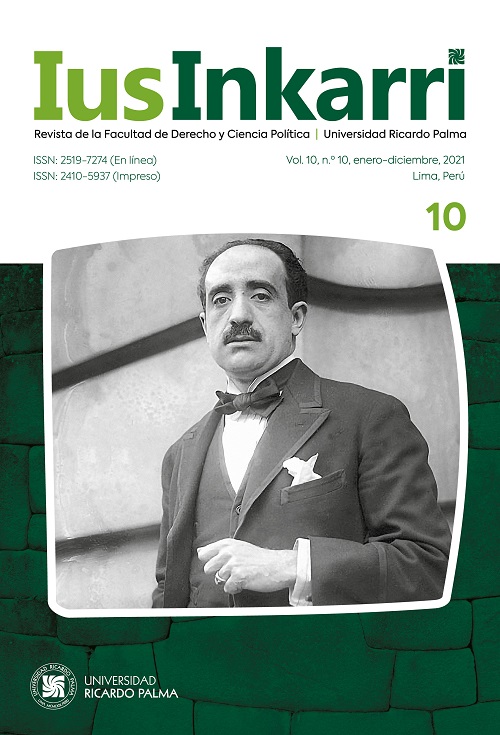The Bicentennial and governance: Constituent Assembly or constitutional reform?
DOI:
https://doi.org/10.31381/iusinkarri.v10n10.4641Keywords:
bicentennial, democratic governance, Constituent Assembly, constitutional reforms, fundamental rightsAbstract
In the framework of the recent general elections and in the context of the commemoration of the bicentennial of the Republic, there has been an intense legal and political debate among those in favor of moving towards a Constituent Assembly that fully renews the fundamental charter; and the defenders of introducing partial reforms to the current Constitution of 1993 through the mechanisms established therein for this purpose. This article explores the advantages, limitations and dangers of both routes. In the same way, it proposes a set of constitutional reforms always having as its objective the need to preserve the essential conditions for democratic governance and the strengthening of fundamental rights in Peru in the 21st century.
Downloads
References
Borea, A. (2013). Constitución de 1993, ni luces ni sombras, sino oscuridad total y oprobio. En Rodríguez, I. (comp.), La Constitución de 1993 a veinte años de su promulgación: aciertos, desaciertos y propuestas de reforma. Universidad Ricardo Palma, Editorial Universitaria.
Chiri, R. (2018). Telecomunicaciones, Constitución y derechos fundamentales. Ius Inkarri. Revista de la Facultad de Derecho y Ciencia Política, (7), 157-166.
Cotler, J. y Grompone, R. (2000). El fujimorismo: ascenso y caída de un régimen autoritario. Instituto de Estudios Peruanos.
Rubio, M., Eguiguren, F. y Bernales, E. (2011). Los derechos fundamentales en la jurisprudencia del Tribunal Constitucional. Fondo Editorial de la Pontificia Universidad Católica del Perú.
Downloads
Published
How to Cite
Issue
Section
License
Copyright (c) 2021 Renzo Chiri Márquez

This work is licensed under a Creative Commons Attribution 4.0 International License.













